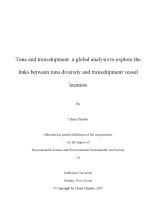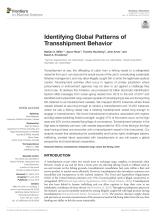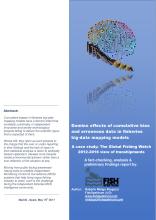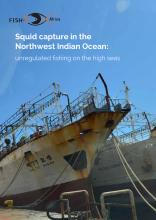Tuna and Transshipment - A global Analysis to Explore the Links between Tuna Diversity and Transshipment Vessel Location
With six of the seven main tuna species already fully fished or overfished, this study aims to find a correlation between tuna distribution and spawning grounds with reefer activity. Tuna is a highly sought-after fish species and reefers provide increased fishing activity while their use in transshipment can also aid in IUU fishing that mainly targets tuna sub-species. On a global scale, the study was unable to find any correlation between reefer activity and tuna distribution or habitat.
Language



